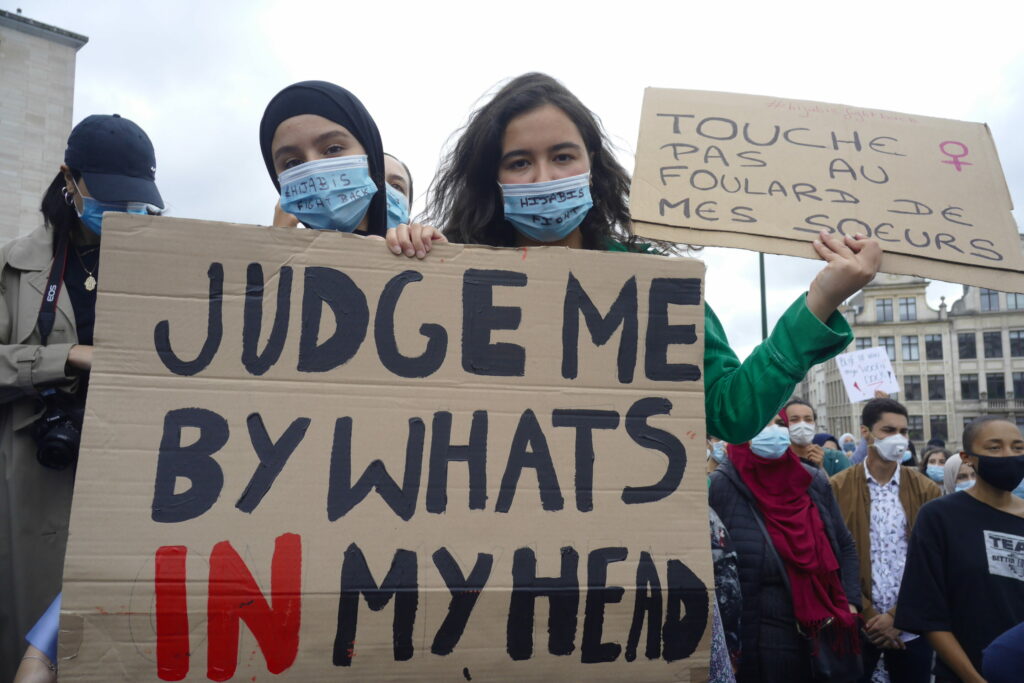The European Court of Human Rights (ECHR) will on Wednesday issue a ruling in a case brought by three young Belgian women against Belgium. They contested the ban on headscarves in their secondary schools.
The three young Muslim women, aged 20, 22 and 23, took the case to the court in November 2020. They argued that they are unable to wear the Islamic headscarf in their secondary schools (except during religious education classes), following the ban in the official education system of the Flemish Community on wearing any visible signs of one’s religious beliefs.
While across Flanders it is up to most schools to decide for themselves whether pupils can wear a headscarf or not, wearing them or other 'religious symbols' in Flemish GO! (community education) schools has been banned since February 2013 following a 2009 ruling on the matter. The argument is that schools in this group have to provide 'neutral' education.
This decision initially ruffled the feathers of people in the Flemish Muslim community, but the subject soon died down. However, the matter once again came to the forefront several years ago when the ban became the subject of numerous court cases.
In February 2018, a court in Tongeren ruled on the case brought by 11 girls from two secondary schools in Maasmechelen in the Limburg province, including the three girls involved in the ECHR case against Belgium.
It stated that they were allowed to wear headscarves at their schools despite the ban based on the European Convention on Human Rights (ECHR), which imposes the obligation on European countries to allow all their citizens to freely practise their religion. This ruling did, however, not annul the headscarf ban.
'Violation of rights'
Almost two years later, at the end of 2019, the Court of Appeal in Antwerp ruled that a ban on wearing headscarves in the two schools in the municipality of Maasmechelen was justified, overturning the Tongeren court decision. It ruled that the ban on all philosophical and religious symbols was necessary for public education.
Flemish Education Minister Ben Weyts (N-VA) called on people to turn the page on the matter, but the girls and their parents considered further steps against the ruling. In 2020, a lawyer at the Court of Cassation issued a negative opinion on the appeal. The case was therefore taken to the ECHR by three of the girls. It will rule on the matter on Thursday morning.
They argued the ban on wearing "conspicuous religious symbols during teaching activities introduced at their school violated their right to respect for their private life, their right to freedom to manifest their religion or beliefs, their right to freedom of expression and their right to education. They maintain that this prohibition discriminates against them in the enjoyment of these rights", an ECHR statement read.
Whether the ECHR will agree remains unclear. The Tongeren court ruling was based on the European Convention on Human Rights, but this does not mean the ECHR will rule in their favour.
In another case focused on the violation of religion – brought by several groups in the Jewish and Muslim communities against the Flemish and Walloon ban on the unstunned slaughter of animals – ECHR rejected the claims that this breaches their religious freedoms. The ECHR added that the measure appeared to be "justified in principle" and "proportionate" to the objective of protecting animal welfare.

